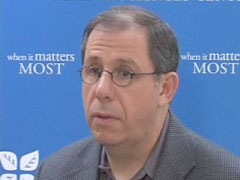"Street" Marijuana Harmful to Cognitive Function in MS Patients
Sunnybrook researchers are the first to provide evidence of the harmful effects of inhaled cannabis on the cognitive and mental health of patients with multiple sclerosis (MS).
"Patients with MS who regularly smoke cannabis are shown to have more extensive cognitive abnormalities, such as difficulties in processing information and short-term verbal memory, and greater lifetime psychopathology than those who do not use cannabis," says Dr. Anthony Feinstein, study author and neuropsychiatrist at Sunnybrook Health Sciences Centre.
The study, published in the February 13 online edition of Neurology, refers to the fact that there is a significant minority of patients with MS who smoke marijuana as a treatment for the disease symptoms, even though there is no scientific evidence to demonstrate its effectiveness or its possible effects on mentation.
"The significance of this finding is particularly important because MS is itself a cause of neuropsychological impairment in 40 to 65 per cent of patients, and therefore this research suggests that smoking marijuana may only be worsening the problem," says Dr. Feinstein, also a professor of Psychiatry at the University of Toronto.
Cognitive dysfunction is an important predictor of patients’ and caregivers’ quality of life.
The hallmarks of MS-related cognitive decline are impaired attention and slowness of information processing, with the disease also affecting episodic memory, executive functioning, and real world decision-making. People with MS have higher rates of depression and suicide compared to the general population.
The Canadian study, funded by a grant from the Canadian Institutes for Health Research (CIHR), involved a small sample size of current cannabis users and a reliance on patient self-reports concerning the details of their cannabis use. Further studies are required to replicate these findings and determine whether they hold true for cannabinoid-based therapeutic agents as well.



